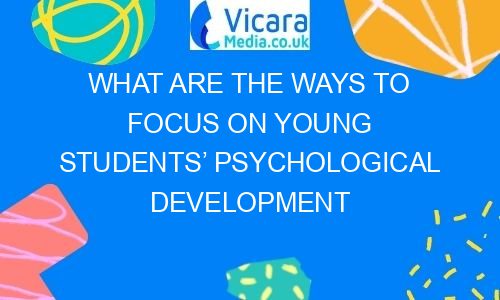We see that educational psychology involves studying how students learn, including teaching methods, as well as instructional processes, as well as individual differences in learning. We see that the goal is to understand how people learn and retain new information. We are aware that this branch of psychology involves not just the learning process of early childhood as well as adolescence but includes the social, emotional, and cognitive processes that are engaged in learning throughout the entire lifespan as well.
The teachers who indulge in teaching lms full form go ahead, and teach the importance of psychological growth in students. We see that the technology-based assessment offers unique opportunities to collect data on students’ cognitive development as well as to use that data to provide both students and teachers with feedback to improve learning. We know that this type of focus aims to show how the psychological dimension of learning can be assessed in everyday educational practice through technology-based assessment in reading, as well as mathematics, and science as well.
We see that emotional development is considered a unique integrative as well as psychologically constructive feature of psychological growth in infancy as well as childhood as we have noticed. We are aware that the role of emotions in behavior as well as development, and the nature of emotion itself, are discussed by structuralists along with the functionalist approaches to emotional development as well. We are aware that it is important to provide extra support to students during tough times, as well as it is equally important to recognize the human capacity for resilience along with the growth from life’s challenges.
We see that the assignment design, as well as pedagogies that encourage deeper learning help students, understand the relevance of their work to the course and beyond. We are also aware that this encourages them to take control of their learning as well as find personal meaning and strength. We see that in the work-integrated learning internship module, students routinely update a reflective log of their skills, as well as knowledge, attitude, feelings, progress, and approaches to learning about the industry and themselves as developing professionals.
We see that in another module, students are required to write a reflective essay that identifies their characteristics as well as strengths and analyses how these may play a part in their lifelong journey of professional and personal development as well. We are aware that helping others can aid our awareness of how much we have to be grateful for, as well as develop empathy, and boost civic responsibility. We know that internship activities are a good way of getting students to work collectively to contribute to the common good of society as well. In such a case, the examples include facilitating mental health (break a fever) webinars, as well as assisting in funded research projects that aim to enhance the quality of palliative care, providing care to abandoned dogs in rescue shelters, as well as designing and delivering animal-assisted activities for community organizations as well.
We know that through cycles of application, as well as goal setting, self-rediscovery along with sharing, students learn that their performance is not solely judged by a grade or their answers to an examination, but through effort as well as persistence as self-directed learners, receptive to ongoing lessons and constructive feedback. We know that the process of developing individual and collective meaning in learning helps students think as well as behave rationally, reasonably, and responsibly as well.
We are aware that educators, must recognize that learning comes from the thinking that students do as well. We know that if one silver lining has come out of the pandemic, it is the opportunity to critically review, as well as rethink, reimagine and redesign our teaching and assessment strategies. We see that by purposefully engaging students in a careful process of challenging the way they understand themselves as well as the world, evaluating their assumptions, as well as making meaning together through learning, we can transform stress into strength as well.
We see that this could serve as an engine of positive psychological growth after struggling through highly challenging life circumstances as well. The attendance management system can be of great help as well.

